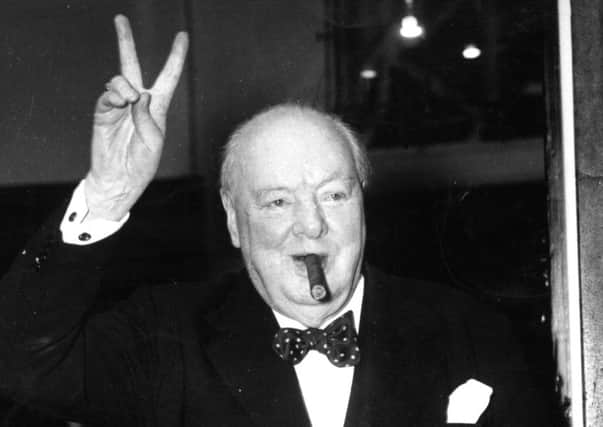Gordon Lindhurst: Brexit poses no threat to fundamental freedoms


The issue of human rights and responsibilities is of course a serious and important one, but must be considered in context. Precisely that context is what seems to be missing from the SNP approach in this area, with instead a poor substitute of wilful ignorance of the historical, legal and factual realities. It is as if the EU were the guarantor of freedoms only just discovered. As if the Human Rights Act 1998 called into existence rights and freedoms never before dreamt of. As if we should simply forget the Scottish Claim of Right, the English Bill of Rights, the Declaration of Arbroath, Magna Carta, and the common law.
In fact, it is no secret that Conservative Prime Minister Winston Churchill supported a European Charter of Human Rights in 1948, in the aftermath of two nightmarishly destructive world wars. Or that British MP and lawyer Sir David Maxwell-Fyfe assisted in guiding the drafting of the European Convention on Human Rights (ECHR) for the Council of Europe, which is distinct from the EU. Or that the UK was one of the first signatories in November 1950.
Advertisement
Hide AdAdvertisement
Hide AdThe ECHR sought to embody understandings already part and parcel of our British legal systems, including notions of fairness and the rule of law. Most people would agree with these norms and also that the nature of humanity remains unaltered decades on. But the practical guarantors are to be found in our own laws and practices as they continue to develop to ensure an appropriate balance of rights and responsibilities in law as we seek to meet the real challenges of the 21st century. In that spirit, in areas such as employment legislation, the UK already goes above and beyond what is required by EU law.
And although the UK is leaving the EU, it is not leaving Europe. Centuries of relationships, trading and treaties will continue. So it is with human rights and their counterpart, responsibilities (for one cannot exist without the other). They are ingrained within our jurisprudence, our laws, and our whole concept of what a just society is. Human rights did not come into existence with the passing of the Human Rights Act 1998, and they would not cease to exist if it were repealed. Indeed, it is only by adopting a flexible approach to how we actively provide for fundamental rights and freedoms that we will protect and promote them into the future.
This remains true irrespective of our international political relations with the EU nations or the rest of the world. We can lead the way to building a just, free and fair society for all. We will fail to do so if we cling unthinkingly to laws and structures of the past, and even the recent past, which do not serve us well in the present. It is crucial that all politicians get on board to look to that future, rather than seeking to manufacture artificial constitutional crises for their own political ends.
Gordon Lindhurst is a Conservative MSP for Lothian